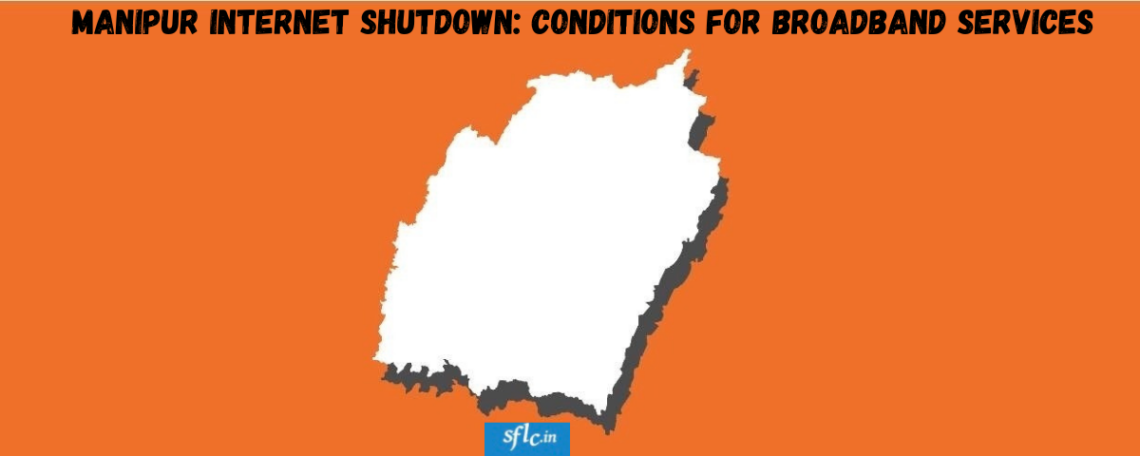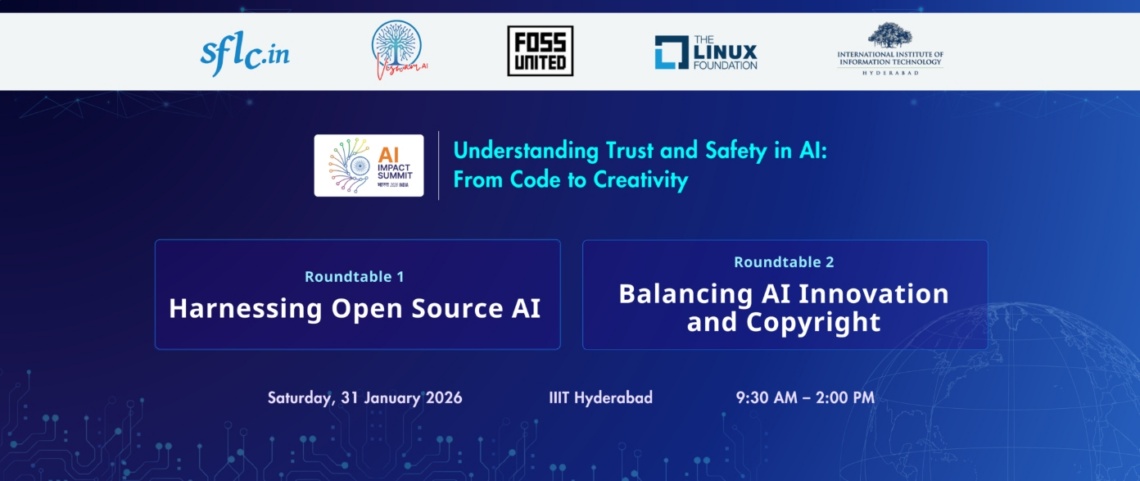The state of Manipur has been subjected to a total internet shutdown since May 3rd. Both mobile internet, as well as broadband internet services have been cut off for the general population of the State, leading to a position of acute hardship and suffering. After 83 days of incessant internet shutdowns, the Manipur Home Department in an Order finally allowed for some (conditional) relief to the public.
Citing the suffering of common folk, the order lifted the shutdown of broadband services on the fulfillment of certain conditions, while continuing to enforce the mobile internet shutdown. The Order detailed that ‘the internet ban had affected important offices/ institutions, cohort of people on work from home basis, chartered Accountant firms, Lawyers, Health facilities, refueling centres, recharging of electricity/ mobile, booking for LPG, educational institutions, Taxation related offices, other online based citizen centric services etc. Apart from this, students, gig workers, and small businesses faced tremendous difficulties.
The measure to provide relief for the citizenry is a welcome measure. However, it must be noted that only around 4% of all internet users access it through broadband internet services. 96% of Indian internet users use mobile internet, for which no relief has been granted yet.
Interestingly, the Order also has no end date, a clear violation of the principle established in AnuradhaBhasin v UoI, which stated that an order suspending internet services indefinitely is impermissible under the Suspension Rules. All the orders previously issued in Manipur had a fixed time limit of 5 days, or 120 hours.
The conditions listed in the Order briefly state that physical monitoring will take place, TSPS and ISPs will be liable for certain compliances, and subscribers themselves will be punished if the terms are not complied with.
The Conditions are as follows:
a) Connection will be only through static IP and that the subscriber concerned shall not accept any other connection other than allowed for the time being [TSP/ISP shall be held responsible for non-compliance of this condition];
b) No Wi-Fi/ Hotspots shall be allowed from any of the routers and systems using the connection at any cost by the subscriber concerned;
c) Media Access Control Address (MAC) binding at the system level or router shall be ensured with the help of ISP/TSP concerned;
d) Blocking of social media websites and VPNS at the local level will be ensured by the subscriber concerned;
e) Shall have to ensure removal of any existing VPNs softwares from the system and not to install any new softwares/ VPN App by the subscriber concerned;
f) Enforcing Physical Monitoring by subscriber concerned/the concerned authority/officials of checking violation of the terms and conditions specified;
g) Changing of log in ID and Password for respective system on daily basis; and
h) Will obey all orders/ Regulations regarding any change in the condition under which service is being allowed issued by the State Government from time to time by the subscriber concerned.
i) Further, in the event of any violation, subscriber concerned will be liable to be punished as per provisions of relevant laws of the land in force and that I also agree to be fixed personally responsible for any leakage/ activities done by any Secondary user of internet, in case Wi-Fi Hotspot had been activated without approval of Home Department from my system/router.
j) ISP shall ensure to obtain undertaking to the extent as explained above before giving any internet connection in the prescribed format without fail.
The fact that Static IP’s are the only ones permitted mean that very few subscribers will be able to access the internet. Static IP is usually only used by corporates, banks and their like, rather than individual consumers who use the internet at home. Further, the condition that no Wi-Fi or hotspots will be allowed translated to the fact that only those with laptops or computers in their offices will be able to access the internet. Phones will be unable to access the internet, making it impossible for people to utilize services if they are not in the vicinity of the router.
Second MAC binding at the system level could ensure that only recognized devices would be able to access the internet. The obligation here is placed on TSPs/ISPs to ensure compliance. This would mean that these service providers would have to keep a list of all permissible devices per router.
The order also details that the subscriber should ensure that social media websites are blocked, along with VPN’s. Further, subscribers will have to ensure the removal of any existing VPN software from the system and not to install any new software/ VPN App. This measure is not only hard to implement, but also overly restrictive. It places unreasonable burdens on consumers, and especially in the case of people who depend on social media for their livelihood, puts them in a situation where doing their job will land them in trouble. Apart from this, the order also states that users will have to change their login and passwords on a daily basis. This is overly prescriptive, and also an inconvenience to consumers.
The requirement of physical monitoring by authorities is equally improbable to implement. The presence of a condition like this points to the fact that there are numerically insignificant broadband connections which would fall under the ambit of the order. If not, it would be impossible for physical monitoring to take place.
The order suffers from many shortcomings. It is essentially granting relief to only 4% of the population which can afford to use broadband connections. The multiple conditions mentioned in the order are not easy to understand by the common public. Additionally, they are heavy on the user and telecom service providers. The order provides very minimal relief to miniscule part of the population. We would like to urge the State Government to revisit the order, lift the shutdown and ensure that internet is available to all the citizens of the state in a fair and transparent manner.




